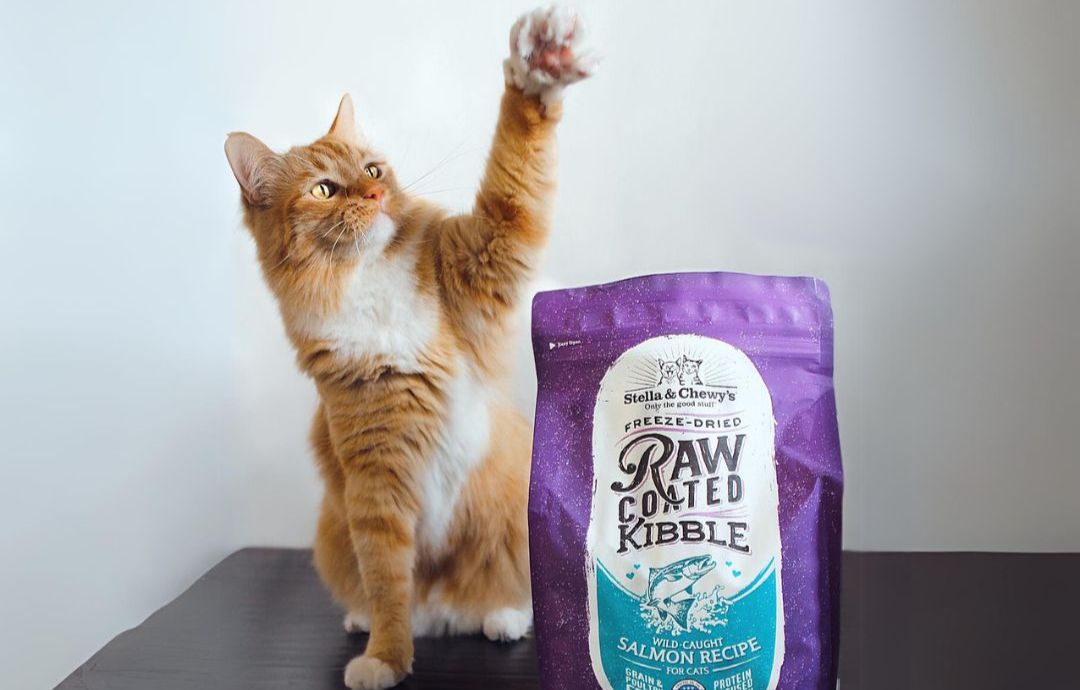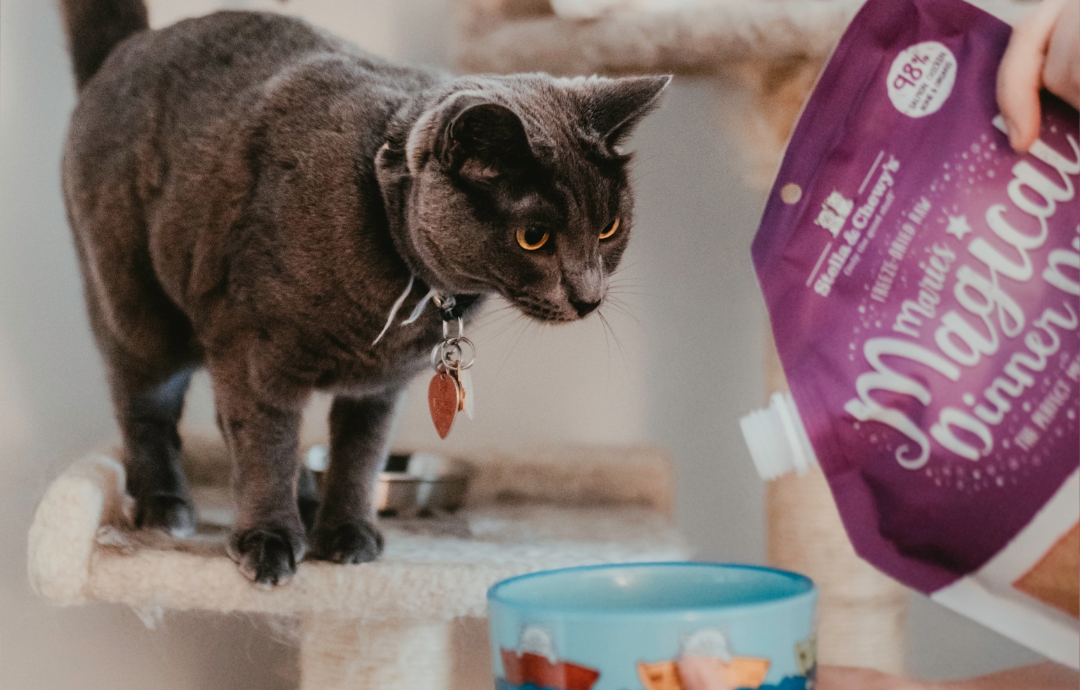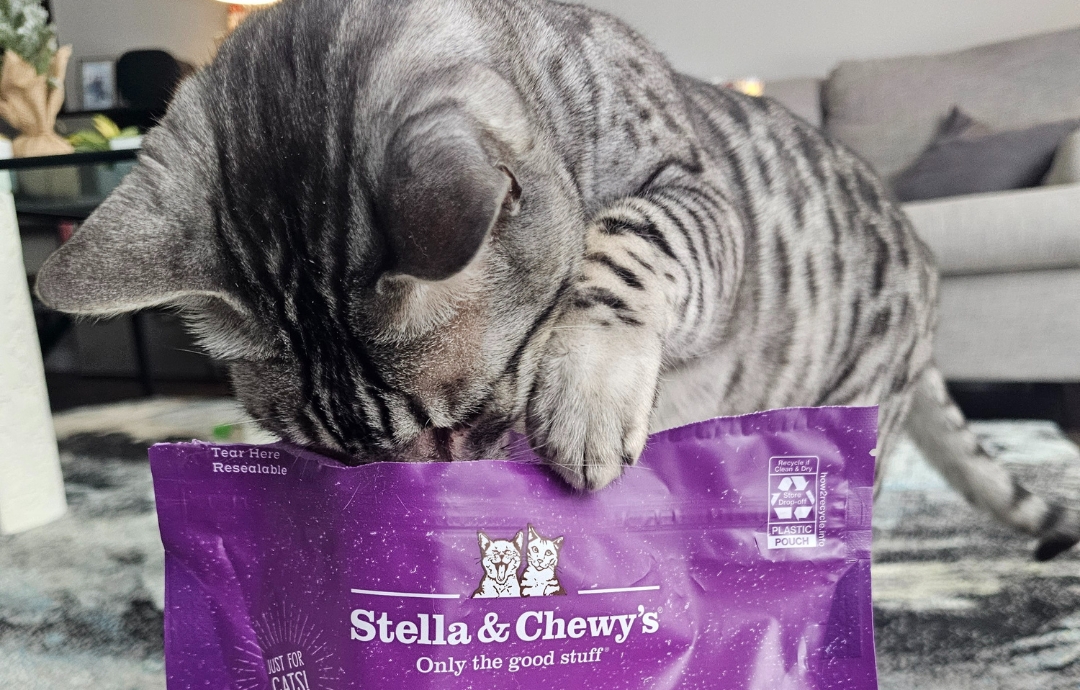
Healthy indoor adult cats generally don’t need you to bathe them. Most cats stay clean with self-grooming and regular brushing. But there are times when you should give your cat a bath, for example if they get something noxious on their fur, or for medical reasons.
Times When Your Cat Needs a Bath
Here are some common reasons why your cat may need a bath:
- Healthy, short haired indoor cats only need an occasional bath if they get something on their fur that they shouldn’t lick off (e.g. litter box splashes, feces, vomit, paint or other toxic household substances)
- Cats that spend time outdoors may need a bath when they come back with pollen, sap or dirt on their coat
- Hairless cat breeds need weekly baths to keep their skin healthy. Otherwise they’re prone to oily buildup because they don’t have fur to draw away sebum and sweat.
- Cats unable to groom themselves need a bath once every few weeks – exactly how often depends on their environment, activities & how often they get dirty. Examples include cats who are sick, obese or have an age-related condition. Long-haired cats who have a hard time keeping their fur clean on their own may also need baths periodically.
- Cats with fleas need a monthly bath with flea shampoo.
- Cats with ringworm need a sulfur bath twice a week for the first two weeks, then weekly for the next few weeks.
- Cats with a skin condition may need a weekly bath with medicated shampoo or oatmeal (as prescribed by your vet).
If your cat requires regular bathing, your veterinarian will advise you. You should always consult your vet if you think your cat might have a skin issue, infestation or difficulty grooming themselves.

How to Give Your Cat a Bath
Proper planning will help the bathing process go easier for both of you! If time allows, it’s helpful to gradually let your cat get used to the sensation of being wet over several days so it’s not as much of a shock when it’s bath time.
You can start by dribbling some water over their paws, then legs, and work your way up to sitting in a small amount of warm water in a sink or tub. Reward your cat with treats and affection for going along with the new experience!
Unless there’s an urgent need, schedule the bath for when your cat is calm, enriched and fed. Regardless of the timing, aim to minimize the amount of time your cat spends in the bath.
Steps to bathing your cat:
- Brush your cat and trim their nails. Brushing before a bath can help loosen up the fur and any mats before bathing.
- Gather supplies:
- Tub/sink liner so they don’t slip (you can also use a towel)
- Plastic cup
- Pitcher of warm water for rinsing
- Cat shampoo (never use dog shampoo on a cat, it can be poisonous or even deadly)
- Towels (have more than you think you’ll need)
- Treats
- Another pair of hands (ideally)
- Prepare & introduce the water
- Water should be warm but not hot, and just a few inches deep
- Introduce your cat to the water by dipping their paws and dripping water on their fur. Use a soothing voice, reward them with treats, and let them get used to the sensation of being wet.
- Gently but firmly hold your cat, facing away from you. Slowly lower them into the sink or tub.
- Get your cat wet
- Pour water over them using a plastic cup
- Avoid their face
- This is where a partner is really helpful – one of you can hold the cat in place while the other pours the water
- Shampoo
- Follow instructions on the bottle (sometimes you have to dilute it first)
- Gently massage your cat’s coat with shampoo to lather it up – work efficiently while still soothing your cat
- Avoid getting shampoo on their face
- Rinse
- Rinse the shampoo off using a pitcher of clean warm water (don’t use the water they’re sitting in)
- Rinse methodically until all the shampoo is gone (shampoo residue can irritate their skin)
- Drain the water and make sure their underside, legs & paws are rinsed clean
- Dry
- Use clean, dry towels to softly dry off your cat
- Don’t rub towels on long-haired cats (it can cause tangles). Gently press and hold to absorb the water.
- If your cat tolerates loud noises, you can try using a hair dryer on the lowest heat setting.
- Reward & Praise
- Give your cat treats and affection during and after the bath.
After bathing, your cat might shake to fling excess water from their fur. It’s also common for cats to groom themselves after a bath to continue to remove water and restore its texture and scent. Post-bath grooming is normal behavior, and the licking also helps distribute natural oils on their coat. This is another good reason to make sure you rinse off all the shampoo!

Is It Normal for Cats to Shiver After a Bath?
Many cats shiver after a bath from stress, because wet fur is cold, or both. You can provide a warm towel or blanket for your cat to cozy up in after bathing, or your cat may seek out a sunny spot to warm up in. If you have a heated cat bed or house you can have it ready. Be cautious about letting your cat use a heating pad meant for people. Only use the lowest setting, always put a dry towel or blanket between the cat and the pad, and stick around to supervise.
Bathing a Cat Who Hates Water
If your cat hates water and needs a bath, you’ll need extra patience. Gently but repeatedly expose them to water with plenty of positive reinforcement. If your efforts are getting you nowhere and your cat truly needs a bath, a professional groomer is your best bet (ask your vet for a recommendation). Some veterinarians will also bathe cats.
Never use a harness, bag or cage when bathing your cat. Products like these are designed to make it easier to control cats for bathing, but cats don’t feel safe with methods like these. Your cat will lose trust in you and it will hurt your relationship. Don’t do it!
Cat Bath Alternatives
Sometimes your cat needs help getting clean, but might not need an actual soap-and-water bath. Here are some other options:
- Cat wipes can help get dirt and other substances off your cat’s fur when a deep clean isn’t necessary. Choose fragrance free wipes made specifically for cats.
- Regular brushing helps your cat’s grooming habits be more effective. Make brushing a positive experience and part of their routine. Brushing also helps if your cat has dandruff (as does feeding your cat a raw food diet).
- Flea combs & topical medicines can treat your cat’s fleas without water – but always follow your veterinarian’s instructions if your cat is diagnosed with fleas.
If using a waterless flea treatment, there’s no need to bathe your cat beforehand. Once you’ve applied the flea treatment, you shouldn’t bathe your cat for at least 24 hours after – the product needs time to fully absorb to be effective.
A word about dry shampoo for cats:
Dry shampoo can work for people but not for cats. There are many waterless shampoo products for cats including powders, sprays and foam but they mainly just mask odor. They won’t help if your cat has oily skin, dandruff or dirty fur, and they can actually make mats and tangles worse.
How Do Cats Feel About Baths?
Every cat is unique, but in general most cats dislike baths for very understandable reasons:
- Wet fur is heavy, cold and uncomfortable
- Their sensitive nose doesn’t like the smell of shampoo
- They might’ve had a negative experience with bathing in the past
- Cats like routines, and a bath is a strange new experience
However there are some cats who tolerate baths or even like them! Maine Coons are known for being water-obsessed, which can make baths much easier. Bengals, Turkish Vans and Savannah cats are also more inclined to enjoy the water. Early exposure to water is another factor that can make cats more agreeable at bath time. Keep reading for tips on how to keep your house clean when you live with pets, and find out why your cat licks you.
GET $3 OFF, INSIDER OFFERS, AND HELPFUL PET CARE TIPS.
By entering your information, you are opting in to receive communication from Stella & Chewy's





